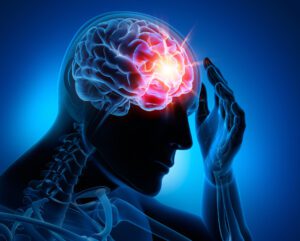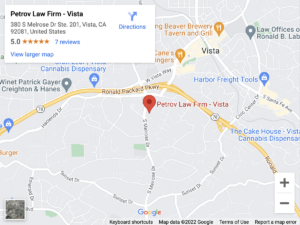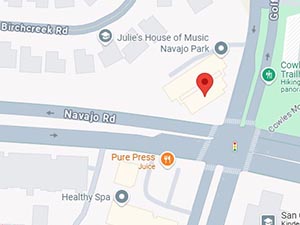
Almost any accident can cause a concussion. You don’t even need to experience head trauma to suffer a concussion. The impact of a fall or a car accident can jostle your brain enough that you experience concussion symptoms.
In most cases, these symptoms will diminish within a few months. But during that time, the headaches, brain fog, and other symptoms can interfere with your ability to work or meet your daily needs.
Read on to learn some facts about concussions and how to get compensation for a concussion injury.
What is the Structure and Function of Your Brain and Skull?

Your brain controls your nervous system.
Your brain uses the senses to gather information. It performs higher-order functions like storing memories, processing thoughts, and making decisions.
The brain formulates and sends the signals needed to turn thoughts and decisions into action, whether that action includes raising your arm or yelling instructions to someone else.
Your nervous system:
- Collects information about your surroundings from your senses
- Controls your involuntary systems like breathing, blood pressure, and temperature
- Carries signals to move your muscles to perform voluntary motions
Your body takes many steps to protect your brain. Your blood supplies nutrients, oxygen, and water to keep it functioning. Your body keeps it warm and blocks microorganisms like bacteria and viruses from invading it.
Your body also protects your brain from physical harm. You can think of the protective layers around your brain as a motorcycle helmet. Your skull provides a hard outer shell to protect your brain from direct impacts. Without your skull, objects hitting your head would push into your brain, causing massive damage.
Inside your skull, your brain floats in a pool of cerebrospinal fluid (CSF). The CSF performs a similar function to the padding inside a helmet. The CSF cushions your brain and slows its motion. Under everyday forces, the viscosity of the CSF prevents your brain from experiencing violent motions that can damage brain tissue.
How Does a Concussion Injury Happen?
A concussion injury happens when your head experiences forces that overcome the protection offered by the CSF. When your brain experiences a small jolt, the CSF gently slows the brain’s motion to prevent it from hitting the inside of your skull.
When your brain experiences violent jostling, it can slosh in the CSF. In a concussion, the CSF still succeeds in preventing your brain from hitting the inside of your skull. But it pushes on the brain so hard that the fluid’s pressure damages brain cells.
In response to the mild brain damage from the fluid pressure, your body triggers inflammation. Inflammation includes a cascade of body reactions designed to protect the body from further damage after an injury. But in some cases, it can produce serious symptoms and even impede healing.
Inflammation in your brain has two detrimental effects:
- Swelling
- Increased temperature
Tissue swells to reduce the circulation in an injured area. Swelling traps any microorganisms in the injured area, preventing an infection from spreading. But it also traps fluid in the area and reduces blood flow to the injured tissue.
This swelling deprives brain cells of oxygen, reducing their effectiveness and increasing the chance of brain cell death.
A mild increase in temperature helps the body kill microorganisms. But it can also produce symptoms that erode the brain’s effectiveness. Fortunately, the increased temperature will usually not permanently damage the brain.
What Can Cause a Concussion Injury?
Concussion injuries can result from a few types of trauma, including:
Head Trauma
A bump on the head can cause a concussion. But generally speaking, the concussion does not come from a bump on the head. Instead, it comes from your brain sloshing in the CSF after you bump your head.
For example, in a slip and fall accident, your feet lose traction, and you usually fall backward. In most cases, you cannot slow or stop your fall because of the direction of your fall. Instead, you fall onto your back, and your head whips backward to strike the ground.
Acceleration-Deceleration
When your body rapidly accelerates or decelerates, the CSF must push on the brain to stop it from sliding so rapidly that it hits the inside of your skull. A concussion during a car accident usually results from rapid acceleration and deceleration.
When you collide with something, your brain wants to keep moving at the same speed in the same direction as before the crash. To stop the brain, the CSF must push on it. This can cause a concussion injury even though you did not hit your head.
Explosions
Explosions create a blast wave of pressurized air. A blast wave can pressurize the CSF and squeeze the brain. This will cause a concussion injury even if you do not hit your head or get thrown to the ground.
Although doctors usually see blast concussions in combat soldiers, they also see them in workplace accidents involving occupations like mining, demolition, and oil and gas extraction.
What Are Some Concussion Injury Symptoms?
Concussions produce physical, cognitive, and emotional symptoms, including:
- Headache
- Tinnitus
- Blurry vision
- Drowsiness
- Clumsiness
- Slurred speech
- Confusion
- Amnesia
- Difficulty concentrating
- Depression
- Anxiety
- Emotional outbursts
Concussion symptoms often manifest over the hours and days after your accident. These symptoms result from the swelling in your brain, and swelling takes time to develop.
In most cases, your symptoms will dissipate within two months. If your symptoms last longer than two months, you may have post-concussion syndrome.
What Compensation Can You Get for a Concussion Injury?
If you suffered a concussion due to someone else’s negligence, you could seek compensation for your injuries. You must prove that a person or business failed to exercise reasonable care and you sustained a concussion due to that failure.
You can recover compensation for your medical bills, lost wages, and pain and suffering if you can prove negligence.
Concussions can produce symptoms that prevent working or even caring for yourself. The confusion, headaches, and other concussion symptoms can cause brain fog and sleeping disorders. They can even worsen the symptoms of PTSD.
To learn about the compensation you can seek for your concussion injury, contact Petrov Personal Injury Lawyers at (619) 344-0360 to schedule a free consultation.


